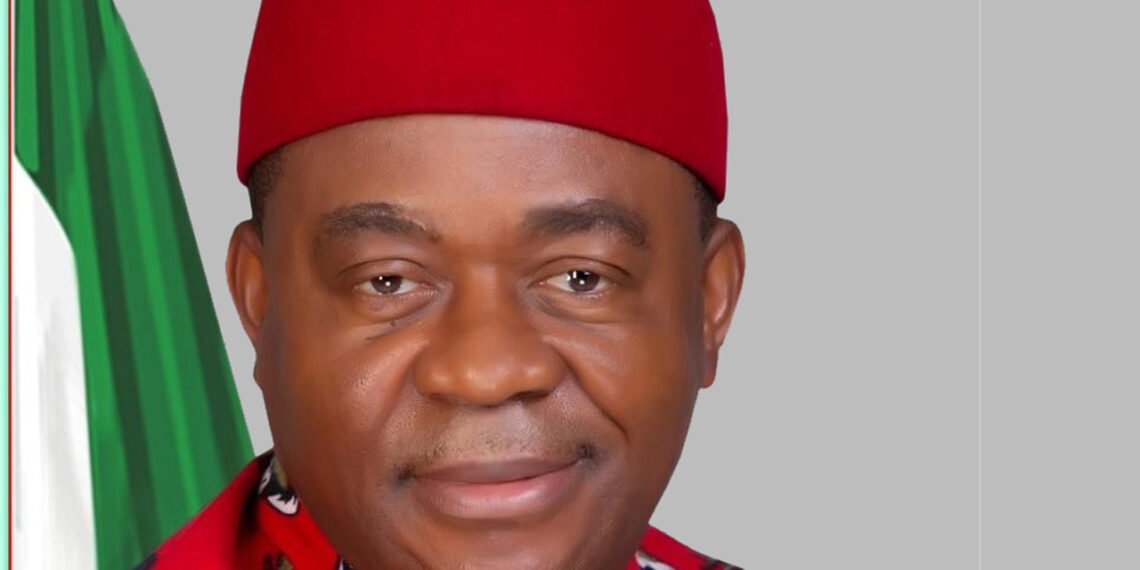Abia State Governor Alex Otti has presented a N1.016 trillion budget proposal for 2026, declaring it a plan designed to speed up development and widen economic opportunities across the state.
Key highlights
- Capital spending set at N811.8bn, representing 80 percent of the entire budget
- Recurrent expenditure fixed at N204.4bn
- Education receives N203.2bn, with major investments in schools and tertiary institutions
- Health sector gets N149.7bn for equipment upgrades and hospital reconstruction
- Road infrastructure to take N169.3bn, covering major highways and community roads
- Transport allocation at N11.1bn, including the purchase of 80 new electric buses
- Projected revenue: N607.2bn, leaving a N409bn deficit to be funded through concessional loans
- State’s IGR expected to rise to N223.4bn in 2026
Presenting the budget tagged “Budget of Acceleration and New Possibilities” before Speaker Emmanuel Emereuwa and members of the State Assembly, Otti said the proposal marks a clear shift toward long-term investments capable of expanding the state’s economic base. The estimate is a 13 percent rise from the 2025 appropriation.
He stressed that the administration intends to fund all recurrent spending from internally generated revenue, while external financing will be channelled strictly into infrastructure. Projected earnings include N83.2bn from FAAC, N67.1bn from VAT, N26.5bn from grants and aid, and N168bn from other federal sources.
Otti explained that the N409bn deficit, representing about 40 percent of the budget, will be funded through loans obtained on favourable terms. He reaffirmed that his government will not borrow for salaries or overheads but only for projects capable of generating returns.
Education takes the largest share of sectoral allocations with N203.2bn. Plans include the construction of 17 model schools, three technical colleges, staff quarters, and ICT laboratories in more than one hundred public schools. Tertiary institutions, including Abia State University and Ogbonnaya Onu Polytechnic, will share N52.8bn.
The health sector will receive N149.7bn for medical equipment, hospital renovation and expanded workforce support. Another N169.3bn is dedicated to road construction and rehabilitation, with major routes such as Umuahia–Ikot Ekpene Road and Ahiaeke–Okwuta–Bende Road listed for upgrades.
Read also: - Governor Muftwang applauds strengthening of Local Government structures for effective grassroots governance in Plateau
- Gov. Nwifuru presents N396.5bn budget for 2025 fiscal year
- Zulum seeks N61 Billion to 2024 supplement budget for infrastructure reconstruction in Borno
Transport development continues with a N11.1bn allocation, including the purchase of 80 additional electric buses. The first batch of 20 buses has already arrived.
Otti said the budget also supports entrepreneurs, farmers, youths, women and vulnerable families. More than N229bn has been set aside for housing, urban renewal, environmental protection and cultural development.
He noted that independent assessments show Abia climbing in fiscal discipline and revenue performance, attributing the gains to improved security, stronger infrastructure and technology-driven revenue systems. The state’s IGR, once estimated at N20bn, is projected to hit N223.4bn in 2026.
He reminded the Assembly that traditional rulers, civil society groups and youths had earlier submitted inputs that helped shape the budget’s priorities.






